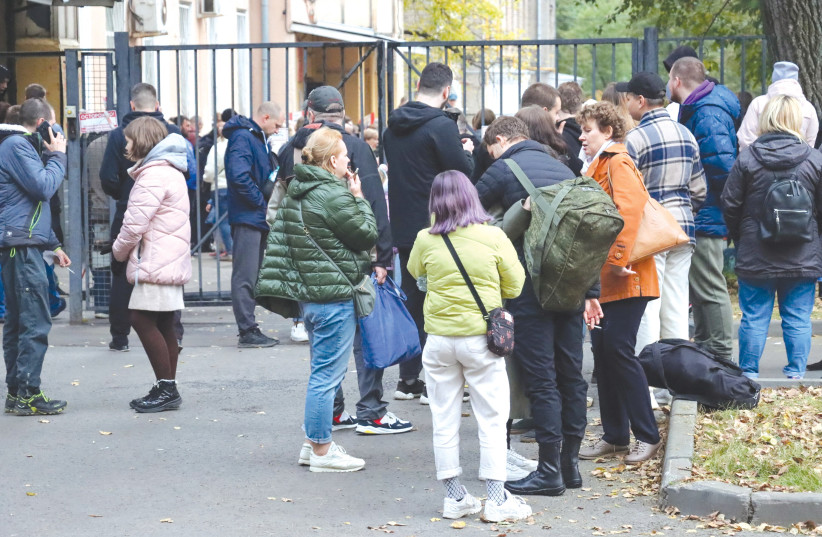With Israel voting on November 1 for the fifth time in under four years, there is only minimal grumbling that this election will cost the country an estimated NIS 2.7 billion.
This figure is made up of the cost of a national work holiday (NIS 1.5b), the budget allocated to the Central Elections Committee to run the elections (NIS 1b.), and NIS 200 million in party financing.
So why is there not more of an outcry over this huge expenditure?
Because most people realize that elections are not cheap, that balloting costs money, and that this is a price of living in a democracy. Israel, after all, proudly waves the banner of being a democracy.
But democracy is not the only banner Israel waves. It also waves the banner of being a haven for Jews. Indeed, that is one of the country’s raison d’être, one of its cardinal purposes: to serve as a home for Jews in need, a refuge for Jews running away from inhospitable lands of birth.

That, too, costs money. But regarding this banner, the current government is proving tight-fisted.
Jewish people from Russia and Ukraine are making their way to Israel
The earth is shaking under the feet of Russia’s estimated 150,000 Jews, and another 450,000 more who are eligible to immigrate under the Law of Return.
Russian President Vladimir Putin’s decision to institute general conscription, as well as fear that Russia’s failings in the war in Ukraine and its lurch to greater authoritarianism will lead to more antisemitism inside the country, has more and more Russian Jews and those eligible to immigrate to Israel looking for a way out. The doors are still open and people – including conscription-aged men – are free to leave. But who knows how long that situation will last?
In anticipation of this, Aliyah and Integration Minister Pnina Tamano-Shata requested a NIS 1b. ($282.5m.) budget to prepare for a wave of immigration the likes of which this country has not seen since the 1990s. The government approved NIS 90m. ($25.4m.) – less than 10%.
Think about that for a minute: NIS 2.7b for yet another election, but only NIS 90m. for a once-in-a-lifetime opportunity to absorb the remnants of Russian Jewry.
Even if, in the tradition of always asking for larger budgets than actually needed, Tamano-Shata’s request was overblown – even if she asked for twice as much as was needed – is NIS 90m. really all this country can spare to fulfill one of its primary missions and serve as a haven for Jews in distress? NIS 2.7b for the fifth election in four years, and NIS 90m. to absorb an expected influx of tens of thousands of Russian immigrants?
Some 40,000 immigrants have arrived since the outbreak of the war in Ukraine, with 24,000 of them coming from Russia. The pace of immigration from Russia is now expected to pick up, with the Jewish Agency forecasting 6,000 immigrants a month for at least the next half year. These immigrants need transportation to Israel, temporary housing, ulpanim and job training once they get here.
It is in Israel’s interest that the absorption process run smoothly. First, because it is a Zionist imperative. Second, alleviating the hardships of people uprooting their lives and moving to a foreign land where they don’t know the language and are starting their lives from scratch is simply the morally right thing to do.
Third, experience has shown that Russian immigrants are a huge boon to the country, with the mass immigration from the former Soviet Union in the 1990s providing Israel with a talented, educated and hard-working pool of people that helped create the “Start-Up Nation,” propelling it into an entirely different economic sphere.
That the government is not allocating more funds now to prepare for a massive aliyah wave shows a lack of grasping of the gravity of the situation facing Russia’s Jews at this momentous hour. This is a historic time, presenting the Jewish state with a historic opportunity. Israel needs to seize the moment and act with a real sense of urgency. Allocating NIS 90m. falls far short of conveying such a sense.
